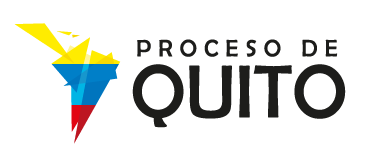Guidance centers
GUIDANCE CENTERS
With the support of:
The Venezuelan refugee and migrant crisis requires different measures that can respond to a variety of challenges. For this reason, regional coordination to manage these responses is essential. Thanks to this joint work, different regional migration management mechanisms have been devised.
In the context of the recent events regarding human mobility, which have been exacerbated by the COVID-19 pandemic, maintaining orientation and reception centers for migrants and refugees, as well as Regional Spaces of Support; mapping services and working together with the network of Regional Support Spaces has all been a challenge for planning, management and coordination. Furthermore, these could very well be part of a work area within the framework of the Coordination Platform for Refugees and Migrants from Venezuela and of the International Donors Conference’s contributions.
The situation in Venezuela has meant that many people enter neighboring countries in vulnerable conditions, all exacerbated by the risks which they are exposed and the needs they face during their travels.
Among these risks are human trafficking networks and illegal trafficking of migrants, armed and criminal groups, extortion, robbery, gender violence, child labor, labor exploitation, sex for survival, and many others. All of these are further exacerbated by discrimination, stigmatization and xenophobia, including discrimination based on sexual orientation and gender identity, which leads to the deterioration of the physical, emotional and psychological well-being of refugees and migrants.
In general, the lack of accessible and reliable sources of information is an obstacle to providing services and exercising rights, which leaves migrants and refugees in a situation of vulnerability. National and local governments, as well as United Nations agencies, led at this point by UNHCR and IOM, together with civil society and international cooperation entities, have established various initiatives to provide guidance to this population regarding first-line services and assistance, through basic servicies, direct or reference, such as first aid, vaccination and guidance towards safe shelters, among others.
Despite all these efforts, it is necessary to harmonize approaches, improve the quality of assistance and information services at the borders, urban areas and along transit routes, as well as throughout the cycle of displacement. It’s also necessary to generate more actions to integrate Venezuelan refugees and migrants.
In Round VI, the emphasis fell upon working from a human rights perspective and raising awareness of the actors involved in the process, on studying and taking into consideration the instruments offered by international organizations as a future working tool, as well as on the importance to include local governments in the work of the centers and support spaces. Finally, the importance of advancing in the exchange of good practices was stressed.
AREAS OF WORK





